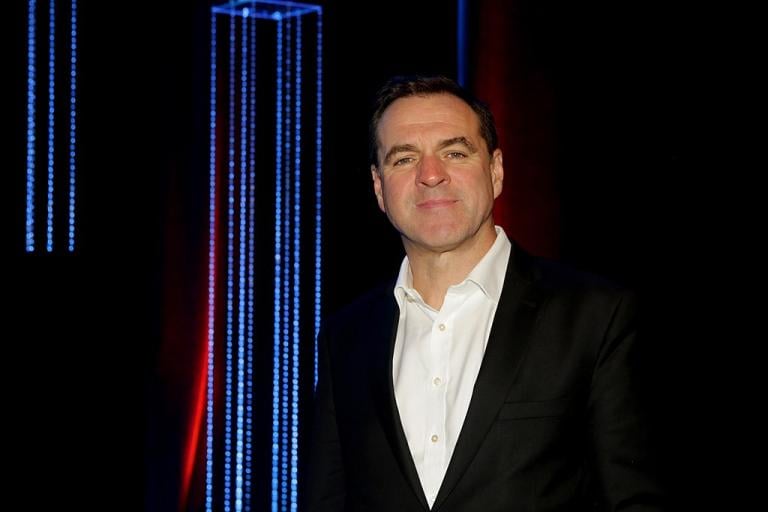As we’ve been blogging about, the New Atheists have given way to the New Theists, as prominent thinkers are showing a new openness to religion. Some of them are not quite there yet, stopping short of Christian faith, but possibly struggling towards it.
Michaela Estruth writes about this for Real Clear Religion. She discusses a Free Press podcast conversation between editor Bari Weiss and historian Tom Holland, whose book Dominion: How the Christian Revolution Remade the World demonstrates to the satisfaction even of hardened secularists that “humane” values such as equality, compassion, and human worth derive from Christianity and nowhere else.
“Both Weiss and Holland seemed to struggle with an inward desire for Christianity to be true,” Estruth writes. “Neither could declare it so, and, yet, both acknowledge its appeals and consolations.”
Holland said that he finally got bored with atheism. Now, he says, ““I exist kind of in the shadowlands between belief and agnosticism.”
“And I feel that, in trying to make sense of it, I’m trying to make sense of myself and the kind of conflicted nature that I sense exists within me and within the society in which I live,” Holland said. “And I ultimately, I find that it makes my life more interesting to be a part of that, to share in that, and to contemplate the possibility that, as you asked, it might be true. There are times where I dare to believe that. Most of the time I don’t, but there are increasingly times that I do.”
Estruth also draws on an interview by psychologist Jordan Peterson with Elon Musk.
“I’m actually a big believer in the principles of Christianity. I think they’re very good,” Musk said. “I’m probably a cultural Christian.”
Peterson pushed him to clarify. Musk presented an optimistic worldview that aimed for greatest happiness both in the present and the future.
“Happiness or meaning?” Peterson asked.
Musk caved, saying meaning leads to happiness.
“To deepen our understanding of the nature of the universe — that is my religion for a lack of better way to describe it,” Musk said. “It’s a religion of curiosity, the religion of greater enlightenment.”
Well, Elon Musk does not sound particularly close to the Kingdom. I would add, though, that in an interview with the Babylon Bee, Musk pressured into agreeing to “accept Jesus as his lord and savior.” But, contrary to popular evangelical usage, saying that isn’t exactly the same as saving faith.
Jordan Peterson, though, sounds much closer. He has been studying and unpacking the Bible in his book We Who Wrestle with God and his YouTube Biblical Series, offering primarily a psychological interpretation of the texts. Estruth reports:
He shared, in a recent interview, his struggle with meaning and hope during a painful three year period when his close family members were suffering. Just a few minutes before, however, he defined the divine as the image of courage in immense suffering. He said Christ is the fulfillment of the Old Testament law and prophets and is in fact God — that belief is more than an appreciation for cultural Christianity.
“It’s indisputable. Christ takes the sins of the world unto himself. That means that all the problems that there are, are his problems,” Peterson said.
Well said! He gets to the content of Christianity. But then he launches into how “the spirit of unlimited courage” is what defines the divine and the work of Christ and is the “highest possible value,” and the moment passes.
Religious belief is different from believing in philosophical propositions or accepting bits of information as being true. Faith is not just an assent to facts. “Thou believest that there is one God,” says the Apostle James; “thou doest well: the devils also believe, and tremble” (James 2:19; KJV). But the devils are ahead of some people. They believe in God. But they don’t tremble.
The trembling part is important. Devils are afraid of God, and so should we be, on account of our sins. But trembling isn’t enough either. Our fear should drive us to Christ, who relieves our fears by His atoning work on the cross.
Faith has to do with salvation. With receiving God’s forgiveness through Christ. With depending on Him for that, trusting Him, and knowing Him. It’s the difference between knowing a fact and knowing a person. If you know a person, you of course believe he or she exists, but it’s much more than that. Growing such a faith takes time. You get that from Word and Sacrament. From going to church.
Estruth also looks at Ayaan Hirsi Ali and her husband, the historian Niall Ferguson. They seem to have gone all the way. Estruth writes:
Niall Ferguson shared his conversion, along with that of his wife, Ayaan Hirsi Ali, and two children, in a post on X in December.
“I have embraced Christianity. We were all baptized, Ayaan and our two sons, together in September,” Ferguson said. “It was the culmination of a quite protracted process.”
Ferguson shared that, like Holland, he “lost his faith in atheism.”
While Hirsi Ali converted to Christianity first, her family was soon to follow, and their baptisms publicly proclaim the decision to follow Christ. Ferguson’s and Hirsi Ali’s journeys from skepticism in atheism to profession of Christianity signifies more than an appreciation for cultural Christianity. Instead, they profess a deep, profound conviction and belief in Christian doctrine.
We should pray that the others will eventually reach this point as well.
Photo: Niall Ferguson by Fronteiras do Pensamento, CC BY-SA 2.0 <https://creativecommons.org/licenses/by-sa/2.0>, via Wikimedia Commons













